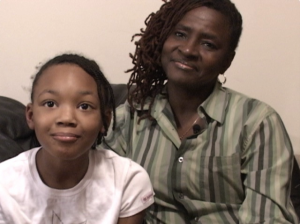New Legislation
PRODUCED BY CYNTHIA MEDINA
NEW LEGISLATION TO AID KINSHIP FOSTER PARENTS
 Parents of kinship foster care children say they feel devalued as foster parents to the child in their care, stemming from the fewer benefits they receive and lack of programs to turn to in order to assist in the child’s upbringing when compared to typical foster families. New legislation going into effect next year could bring more financial support from the state for the care of these children.
Parents of kinship foster care children say they feel devalued as foster parents to the child in their care, stemming from the fewer benefits they receive and lack of programs to turn to in order to assist in the child’s upbringing when compared to typical foster families. New legislation going into effect next year could bring more financial support from the state for the care of these children.
Kinship care is defined as a type of foster care where a child is placed with a relative, typically a grandparent. It is usually divided into two types—formal and informal. Formal kinship care is decided by the courts and child protective service agencies. The child then is then placed in legal custody of a child welfare agency. In informal kinship care, the child is still in custody of the parents, but the family decides that the child will live with relatives or other kin. Social workers may be involved but a child welfare agency does not take custody of the child. Over 90 percent of all kinship care in New York is based in New York City.
VIDEO STORY
 Related Content
Related Content
[Watch Now]
Kinship guardians say because of the knowledge that they are biologically related to the person they are taking care of, the system disregards the costs involved in them taking them in, assuming they don’t need help because it is family.
“There’s the assumption that kinship foster parents don’t need equal amounts of financial support. When you go to the supermarket, that extra person has to be accounted for in your budget,” Maurice Lacey said, temporary kinship guardian to his cousin’s 18-year-old son and Executive Director of Faith Mission Crisis Center.
Because they get less funding than foster care children, kinship guardians often keep the children in the system longer than they’d like, so they can receive benefits they need in raising the child.
“There’s a lot of times where relatives would like to, but were not able to take care for a child because they didn’t have the funds. They thought the child would be better off financially in the system because the child at least could get the needs they had,” Eady said.
There are currently numerous workshops and support groups for foster and adoptive families sponsored by the Salvation Army, religious organizations and the Administration for Children’s Services. Support for kinship families is much rarer and families don’t have a lot of places to turn to for support with their unique situations.
Studies have shown that children who live in Kinship foster homes, as opposed to typical foster homes tend to be more stable and less likely to commit violent crimes. Because of the benefits of raising a child in kinship care, experts say there should be a higher level of respect and financial support to kinship caregivers.
“The concept of family taking care of family is really more beneficial if the family is productive. You have to remember what the family component is and what’s involved,” Michelle Chapple of PSS Kinship Caregivers Program said.
New legislation being implemented next year will give kinship foster parents the same amount of monetary benefits as foster children. Because of the new amount of help, many guardians say they would do it again if they could, but would be more prepared the next time around.
“I would try to empower myself more. I wouldn’t just go along with the program. I would want to be a partner with them instead of a subject and I would want to tell them what he needed, because I kind of put them on a pedestal of being the professionals and I made myself kind of a client without even realizing it,” Lacey said.